IPL PHOTOFACIAL - NON-SURGICAL SKIN REJUVENATION AT AW PLASTIC SURGERY
Our skin serves as a protective barrier, insulating us from toxins and the harmful effects of UV radiation. This role, while essential, places a great deal of stress on the skin. Skin cells are constantly being shed and replaced as they’re damaged by the external environment. When we’re young, our skin cells are quickly renewed, before visible signs of wear appear. However, after age 30, the rate of cellular renewal gradually slows down, as does the rate of collagen production. Fine lines, sun spots, and other visible signs of aging therefore begin to appear.
To treat the superficial signs of aging our team uses intense pulsed light (IPL) therapy. By speeding up cellular renewal, the IPL Photofacial can erase blemishes while making the skin stronger, smoother, and healthier. IPL treatment can be employed as a standalone procedure, or it can be used to complement the results of facial surgery and injectable treatments.
HOW IPL PHOTOFACIAL TREATMENTS WORKS
Unlike other skin resurfacing treatments, the IPL Photofacial system doesn’t require the use of harsh chemical agents. Instead, an applicator device (the Ellipse Frax 1550) exfoliates the skin with pulses of light. This process removes dead and damaged cells, increases collagen production, and causes superficial blood vessels to contract. The pulses of light emitted by the Ellipse are capable of penetrating deep into the epidermis without burning or otherwise damaging the skin.
The IPL Photofacial is more versatile and less invasive than conventional laser skin resurfacing. The wavelength of light emitted during IPL therapy can be adjusted to target a wide range of different issues. By contrast, laser devices are limited to just one wavelength of light.
The IPL Photofacial can effectively treat all of the following skin conditions:
- Enlarged pores;
- Acne and acne scars;
- Sun spots and excessive freckling;
- Areas of rough, flaky, or leathery skin;
- Hyperpigmentation and melasma;
- Vascular abnormalities, including spider veins, broken blood vessels and capillaries, telangiectasia, and rosacea.
Each IPL Photofacial treatment takes about 30 minutes to complete, making this procedure a convenient choice for patients hoping to minimize the signs of aging. However, most patients will need to have more than one treatment to achieve optimal results. Depending on the severity of the blemishes you wish to treat, you will need between three and six Photofacial appointments, spaced at least three weeks apart. Because the benefits of increased collagen production manifest gradually, you will continue to see improvements in the condition of your skin for up to two months after your last appointment.
WHAT TO EXPECT DURING RECOVERY
Intense pulsed light therapy is a minimally invasive treatment; as such, it has few side effects. Most patients experience mild redness and tenderness for about 48 hours after having an IPL Photofacial. If this side effect bothers you, you may wish to take two days off of work while you heal, but downtime is not strictly necessary.
In rare cases, redness may last for up to seven days and be accompanied by swelling or bruising. Localized scabbing can also occur after the targeted treatment of sun spots; this is a normal part of the healing process and not a cause for alarm.
Intense pulsed light therapy makes the skin temporarily more vulnerable to damage from UV radiation. You will therefore need to be particularly careful to avoid sun exposure for about two weeks after your treatment.
WHO MAKES A GOOD CANDIDATE FOR IPL THERAPY
Most healthy adults make good IPL Photofacial candidates, but there are some steps you will need to take before having this treatment in order to minimize your risk of complications. You should discontinue the use of all blood-thinning medications two weeks prior to each treatment session. This includes the use of over the counter NSAID pain relievers, like aspirin, ibuprofen, and naproxen. You should also avoid the use of treatments that contain Vitamin A acids (like Accutane, Retin-A, and glycolic acid) for at least 60 days prior to IPL treatment. Finally, like most skin resurfacing treatments, the IPL Photofacial is not recommended for women who are pregnant or breastfeeding.
ARRANGE AN IPL PHOTOFACIAL CONSULTATION IN PORTSMOUTH
Intense pulsed light therapy can minimize many of the visible signs of aging while improving the overall health of your skin. If you would like to learn more about the IPL Photofacial, contact board-certified Portsmouth plastic surgeon Dr. Anthony Wilson at (603) 294-4526. He and his expert team will be happy to answer any questions you may have during your one-on-one consultation.
Meet Dr. Wilson
Anthony Wilson, MD has vast experience performing facial, body, and reconstructive procedures. After receiving an undergraduate degree from Harvard University and completing training with a medical degree from the University of Pennsylvania, Dr. Wilson has continued to improve his technique to ensure the best results possible. Learn More about Anthony Wilson, MD, and why you should choose the Board-Certified plastic surgeon for your next procedure in the Seacoast Region.
